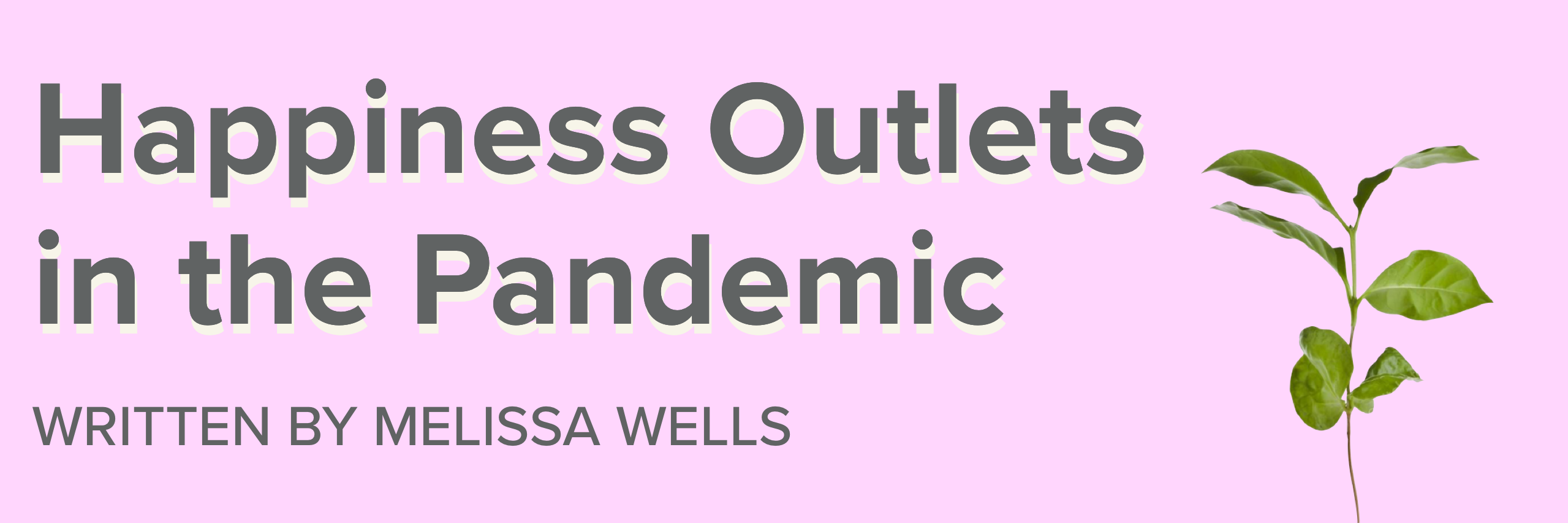
Fear. Panic. Anxiety. Hopelessness. Stress. Denial. Is this really happening? Can it happen to me?
By early 2020, the novel coronavirus was not of concern in America, despite the waves of outbreaks originating from China and sweeping through Europe. Then it hit a Washington state nursing home on January 20. By April, there was not one state in the U.S. that hadn’t reported at least one case. As the pandemic continues to ebb and flow unpredictably, many find themselves feeling “end of the world” blues. In some ways, we are grieving a way of life. Mourning and healing from so much tragedy is a day-by-day process with no expiration date. This season of life, like any other, is transient.
With the restless energy and worry this free time has given us, there are many outlets that can bring you happiness during the pandemic. This article aims to provide suggestions to help you continue soldiering through this difficult period. It can be something as simple as unscheduled, quiet time. It can also just mean more serious check-ins between friends where someone is brave enough to be vulnerable and genuine about their feelings, whether surrounding the polarized political climate or fears concerning the pandemic. For those feeling the impact on their mental health, it may be helpful to schedule more frequent checkups with medical professionals.
Social media and news intake are especially prominent outlets being used to stay connected virtually, but limiting their use is actually more beneficial to mental and emotional health. Virtual users risk becoming addicted to social platforms, even as they experience stress from their use. According to a 2019 study by Lancaster University, even though users are stressed from social media use, they use those same platforms to cope with that stress, ultimately embedding themselves in the social network environment with newly formed compulsive and excessive behavior.
Another anxiety-relieving method is simply creating mantras that you can repeat or write down to build yourself up throughout the day. For example: “You are alive. You are surviving. You are breathing.” Mantra meditation is used as a medium to override and redirect negative or intrusive thoughts that perpetuate psychological distress by continually repeating a specific word or phrase (silently or aloud). Even if you take five minutes to move your body through meditation, practicing yoga, or engaging in exercises that activate your lymphatic system and promote drainage —— this will encourage more effective flow and bolsters your immune system against potential infections.
A Cornell University study from earlier this year shone light on the subject of how nature impacts stress, concluding that as little as 10 minutes in a natural setting stimulates serotonin and lessens the effects of both physical and mental stress. There is something about being outside and taking meditative deep breaths that is cleansing, or standing barefoot where you can feel the texture of what is underneath your feet that is grounding. Watching the sun rise is another irrevocable reminder that it will do so again.
In addition to providing guidance on the infectious spread of COVID-19, the CDC included important suggestions to help cope, acknowledging that it is understandable to see higher levels of stress. They encourage taking care of your emotional health as you would in any disaster — for your own wellbeing as well as your family and friends. Taking care of your emotional health also means nourishing your body with healthy eating habits, regular exercise, and an established sleep routine. These habits not only provide outlets to funnel energy into but also bolster the immune system against infection.
This conversation should not have been warranted simply because of the global pandemic we find ourselves in but is necessary nonetheless. The best outlet that will never fail to bring you joy is yourself. Even if you have not discovered your purpose or been inspired to fill this standstill of time with productivity, the important part is that you kept going through each day. The U.S. is a productivity-obsessed, emotion-phobic culture that blames individuals for being anything but hyper-productive and relentlessly optimistic. This cultural narrative is so pervasive that we cannot even recognize the high standards we set for ourselves for what they really are: unrealistic and unnecessary.
So be gentle with yourself. Do not bottle up the many emotions that come with such unprecedented circumstances. In the same way, tuck the beautiful memories inside for safekeeping, to revisit when the foundation you are standing on begins to shake once more. Most importantly, remind yourself of the happiness that awaits you: in the art you want to create, the people you are destined to meet, the places waiting for you to visit. Whether you have been directly or indirectly affected by COVID-19, this is a reminder that the storm will pass, wounds will heal, and you will survive.
As Mary Oliver wrote, “Tell me what it is you plan to do with your one wild and precious life?” As much as possible.